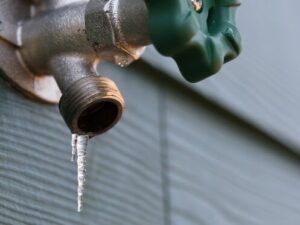Our Blogs

WINTER PLUMBING ESSENTIALS: PREVENTING BURST PIPES AND COSTLY REPAIRS
Protect Your Pipes from Freezing: A Comprehensive Guide Frozen pipes can be disruptive, frustrating, and expensive. When water in your pipes freezes, it expands, putting

HOW TO IMPROVE YOUR FURNACE’S HUMIDITY LEVELS FOR A MORE COMFORTABLE WINTER
You need your furnace in Louisville to keep you comfortable during the winter season. Being able to control the humidity levels in your home makes

HOW TO CHOOSE THE RIGHT LED BULBS FOR YOUR HOME
If your home relies on incandescent and compact fluorescent bulbs, you’re due for some upgrades. LED bulbs have significant advantages, and their prices continue to

HOW TO PREVENT HOLIDAY PLUMBING DISASTERS
The holidays are when many households host large gatherings and do a lot of cooking. That activity can put a great deal of strain on

HOW TO IMPROVE YOUR HOME’S VENTILATION
As the weather starts to get colder outside, many of us are spending more time indoors. This can raise concerns about the quality of air

5 REASONS YOU NEED A BACKUP GENERATOR FOR YOUR HOME
You can’t always rely on the electrical grid. Power outages happen all the time, usually at the most inconvenient moments. If your goal is to

THE MANY ADVANTAGES OF TRENCHLESS SEWER REPAIR SERVICE
Over its lifespan, your sewer line experiences a lot. From built-up debris, like greases and soap scum, and tree root invasion to complete line collapsing.

HOW TO PREPARE YOUR FURNACE FOR WINTER
As the colder months approach, it’s the perfect time to assess your heating system’s performance and prepare for the season ahead. Taking proactive steps now

HOMEOWNERS’ GUIDE TO GFCI OUTLETS
The term GFCI stands for ground fault circuit interrupter. GFCI outlets are crucial for home safety since they protect you from electrical shocks and fires.

TIPS FOR DEALING WITH COMMON RESIDENTIAL SEWER ISSUES
Sewer issues can become more than a headache. In some cases, they can expose your family to harmful bacteria that can make them sick. While

WHY SEWER LINE INSPECTIONS ARE SO IMPORTANT
Whether you’re buying a home in Louisville or Elizabethtown, KY or already own one, you need a sewer line inspection. To protect your investment and

GARAGE DOOR SECURITY: TIPS TO PREVENT BREAK-INS
An unescured garage door can entice burglars and thieves to enter your home. You can mitigate this risk by using these 11 tips for garage
